Policy Speech by the Governor of Tokyo, Koike Yuriko, at the Second Regular Session of the Tokyo Metropolitan Assembly, 2020
In the opening of the second regular session of the Tokyo Metropolitan Assembly in 2020, I wish to relate my basic stance on future metropolitan administration.
I would like to begin by offering my condolences to the families of those who passed away from the novel coronavirus disease (COVID-19). May they rest in peace. We will continue to devote our full resources to our COVID-19 response so that we can overcome this virus as early as possible together with the people of Tokyo.
1. Overcoming COVID-19
-
The day before yesterday, the state of emergency that had been declared by the national government and extended from May 7 by a month to bring things under control, was lifted in Tokyo. For nearly two months the people of Tokyo have stayed home and business operators have suspended or curbed the use of facilities as measures requested by the Tokyo Metropolitan Government for the state of emergency. With regard to schools, we received enormous cooperation from students and guardians when classes were suspended during the important end- and beginning-of-school term period. The state of emergency was lifted due to the efforts of many, including health care workers who stand at the frontlines battling the virus and essential workers who support our daily lives.
Protect yourself. Protect your family and the people you care for. This required the careful actions of each individual and a number of measures advanced by the TMG, starting with enhancement of the health care provision system. This is none other than “self-support,” “mutual support,” and “public assistance” put into practice; evidence that Tokyo has come together to fight this disease. As the governor of Tokyo, I again extend my deepest appreciation to everyone for their cooperation.
However, we must remember that as long as there is no effective medicine or vaccine, only our strong will and actions can prevent the spread of this virus. The TMG will continue to take thorough measures. So that your efforts are not in vain, I ask the people of Tokyo for their continued cooperation in taking actions to prevent becoming infected and infecting others.
-
Now, I would like to speak about the discretionary action I recently took to promote measures against the novel coronavirus infection.
On May 7, in line with the extension of state of emergency measures by the Tokyo Metropolitan Government, discretionary action was taken for a supplementary budget of 44.9 billion yen. Nearly 80 percent of this budget is to increase the amount of funds available for loans to households whose income has decreased due to the suspension of business operation or other such reasons. Additional budgetary measures have been taken to ensure that those in need can access emergency and temporary loans to maintain their livelihoods and rebuild their lives.
As a result of the temporary closure of schools, we have also allocated funds for the promotion of online learning in municipal schools as an emergency measure to connect families with schools and help children continue to learn. Under this program, the Tokyo Metropolitan Government will procure computers and lend them to municipalities to make up for their shortfalls, so that they can then lend them to children and students who do not have PCs or other learning devices at home, and will also help with the costs of ensuring suitable telecommunications capabilities.
Furthermore, additional expenses were appropriated for initiatives that have been carried out to date to support children, such as additional subsidies for the opening of after school clubs for primary school children from the morning, and support for after school day care services, which are increasingly being used in conjunction with the closure of special needs schools.
Subsequently, on May 13, we spent approximately 3.2 billion yen for the emergency procurement of masks and other personal protective equipment to be provided to medical, social welfare, and other facilities. I took discretionary action, as all of these measures needed to be implemented in a timely manner to prevent the spread of COVID-19. I would like to ask for the approval of the Tokyo Metropolitan Assembly for this action.
-
Enhancement of the health care provision and testing systems
Since assuming the office of Governor, I have been promoting policies that focus on people with the aim of realizing a Tokyo where people shine, because I believe that nothing is more important than the lives and health of the people of Tokyo. With an unwavering commitment to protecting each and every individual, I have consistently worked to strengthen our medical care delivery system. To date, we have secured a total of 3,300 hospital beds for patients with critical, serious, and moderate conditions, as well as more than 2,800 rooms in designated hotels for the recovery of patients with mild or no symptoms.
With regard to the testing system, we have a processing capacity for PCR testing to diagnose infection of more than 3,000 cases per day when combined with the capacity of private institutions, and medical institutions have begun to conduct antigen tests that can be performed in a shorter period of time. In addition, starting next month, the Tokyo Metropolitan Institute of Medical Science will conduct about 3,000 tests a month to check for coronavirus antibodies, and separately will promote tests in cooperation with the national government to further understand the actual status of infection in Tokyo.
Furthermore, we will continue to support those who work on the front lines of medical care by providing subsidies for special work allowances to medical workers and subsidizing the leasing of lodging facilities to be used for short rest and other purposes. As of yesterday, we have received over 350 million yen in donations, mainly for the purchase of essential supplies for the field, and part of this money will be used to purchase additional masks to be provided to medical institutions. I would like to express our sincere gratitude to the many people who have shown their warm support. A few days ago, I visited metropolitan hospitals, public health centers, laboratories and other life-saving facilities in both the 23-special wards and the Tama areas to encourage employees who are dedicating themselves to their missions. We will continue to take all possible measures to protect the lives of the people of Tokyo while fully taking into account the actual situation in the field.
Payment for cooperation in preventing the spread of infection
From May 11, the TMG has begun providing payments to all SMEs that cooperated fully with the request to suspend or curb operations during the period from April 16 to May 6 in order to stop the spread of the infection. At present, we have received about 100,000 applications, and I would like to express our gratitude once again to the many businesses that have cooperated with us.
As we will again be requesting a suspension of operations due to the recent extension of the emergency measures, we have decided to similarly provide them with payment for their cooperation, taking into account the conditions faced by the businesses that support Tokyo’s economy and the requests of the Tokyo Metropolitan Assembly. The proposed supplementary budget submitted at this regular session includes expenditures for that purpose. I thank you for your consideration.
-
Supporting the livelihoods of individuals
Next, I would like to talk about efforts to support the lives of Tokyo residents and the economic activities of Tokyo.
In the midst of this unprecedented state of emergency, which is having a serious impact on the lives of the people of Tokyo, we will support the livelihoods of each and every person. To this end, the Tokyo Metropolitan Government has taken a wide range of measures. For example, as part of our support for children and child-rearing, we have expanded the subsidy scheme for babysitters to include children who use daycare centers and other facilities that have been temporarily closed, and we are also providing support for home study during the temporary closure of schools through television programs and websites. In addition, the number of loans that are effectively interest-free for employees of SMEs whose income has decreased due to absence from work will be further expanded to firmly support the stability of their lives. Furthermore, the Tokyo Metropolitan Government will provide part-time job opportunities and support the next generation of university students and others in their job hunting activities by providing online career counseling and seminars, so that they can balance their studies and lives and open up a hopeful future.
Diverse support for businesses
The key to sustaining Tokyo's economic activity is to provide more support for SMEs. Especially, in order to secure funds for business operations, which is our top priority, we have provided uninterrupted support, including emergency loans for immediate needs and extension of the lending period of existing guaranteed loans, through formation of the 13-month budget from the end of last fiscal year. From this month, we are further strengthening cash flow support by having up to 100 million yen of such loans provided interest free for three years.
As for teleworking, which should be boldly promoted at this time to improve productivity and reduce human contact, an emergency survey conducted in April showed that the rate of adoption by companies in Tokyo increased by 2.6 times from the previous month to 62.7% of the total. The percentage of employees who are teleworking at companies has increased by 2.5 times since last December to about 50% on average. Commuter congestion has also eased, for example, the number of passengers on the Toei subway lines during the morning commute has roughly decreased by more than 60 percent since April compared to January. The Tokyo Metropolitan Government has strongly encouraged the introduction of telework among SMEs by fully subsidizing costs of up to 2.5 million yen for preparing necessary equipment. We will continue to strongly promote the establishment of a new way of working and a new normal so as not to stop the trend of comfortable commuting.
Also, we will support small and medium-sized restaurant businesses that are starting new services such as take-out, home delivery, and mobile concessions, by subsidizing their initial expenses and other costs. We will expand a variety of support while standing closely by business operators.
We have also launched a website with a navigation feature to make it easier to search and browse for support tailored to user needs, including the wide range of measures by the Tokyo Metropolitan Government as well as central government initiatives. We will continue to fight against this infectious disease together with the residents and businesses of Tokyo by providing a wide variety of menu items and establishing a system to ensure that appropriate information reaches those who need it without fail.
-
Formulation of the Roadmap to Overcoming COVID-19
“For the time being, we must live with this new virus.” As so indicated by the national government’s council of experts, the battle against this invisible enemy is expected to be long. We must build a new society that achieves a balance between containing COVID-19 and maintaining socioeconomic activity. For that purpose, last week I announced a roadmap to share with Tokyo’s citizens and businesses the initiatives and procedures we are taking and to gather our full resources to overcome this threat.
This roadmap aims to properly control the spread of the virus through constant monitoring utilizing seven indicators, including the numbers of new positive cases, hospitalized patients, and PCR positivity rates. As for the relaxation of business suspension requests, we established four steps (from Step 0 to Step 3), and yesterday we entered Step 1. Further relaxation of requests will be carried out in stages through comprehensive decisions based on the indicators and views of the council of experts for COVID-19 response, which also include the perspective of boosting economic activity. On the other hand, if there is an indication that the infection is spreading, a “Tokyo Alert” will once again be issued to warn the people of Tokyo, and if the situation worsens, requests will also be made for people to stay at home and businesses to again suspend or curb activities.
With regard to metropolitan schools, children’s learning will be secured by reopening schools in stages through staggered attendance and by combining face-to-face instruction at school and online learning at home.
We must move forward with initiatives in preparation for a “second wave” with an “always be prepared” approach. Along with requesting the national government to further strengthen measures at ports of entry, during this period we will solidify countermeasures for another spread of the virus which is feared to occur, including enhancing the testing system throughout Tokyo, securing hospital beds and designated hotels for recovery, and creating guidelines and videos to strengthen measures to prevent hospital-acquired infections.
Prevent infection through the “new normal”
It is essential to establish this “new normal,” with new lifestyle and workplace practices in place to contain the virus, which spreads through contact between people. Keep your distance from others. Avoid closed spaces, crowded places, and close conversations. Reduce contact with others by telecommuting or staggering your work hours. In order to find an “exit” to this battle against the virus, we will work for thorough implementation of measures to prevent the further spread of infection while sharing an awareness with the people and businesses of Tokyo that we are now standing at the “entrance” to firmly establishing the new normal.
Toward a new society where connections between people have diversified
We will overcome this enemy by working to achieve a balance between containing COVID-19 and maintaining socioeconomic activities through adoption of the new normal and establishing appropriate health care delivery systems. The acceleration of measures to achieve this, including online education and health care, telecommuting, and digitizing administrative procedures, will diversify connections between people, bringing us closer to our goal of realizing a more advanced society.
With regard to online education, in particular, we have been strongly promoting the use of ICT in education through the TOKYO Smart School Project. Recently, by considerably advancing its original schedule, we have introduced to all metropolitan schools a learning support service that allows teachers and students to interact online. To support municipal schools as well, we have just proposed to this regular session of the Tokyo Metropolitan Assembly a bill to purchase, among others, PCs to be loaned out to the municipalities by the TMG as learning tools. We will use this opportunity to dramatically advance online education in public schools in Tokyo.
Overseas, there are a number of leading examples where governments are making optimal use of digital technologies to curb the spread of infection and support residents, such as the development of apps that can identify individuals who have come in close contact with infected persons, and the swift provision of grants through online applications. Next month, the TMG will also launch a new cashless tax payment system using a smartphone payment app to enhance citizen convenience and reduce crowding at the tax office counters. In addition, so that administrative procedures can be completed “anywhere and anytime,” the TMG will successively digitalize those procedures it is legally authorized to revise. Currently, ordinances and regulations stipulate that administrative procedures at the TMG must, as a general rule, be done in paper form. By leveraging the amendment of these ordinances and regulations, we will promote, in principle, the digitalization of almost all of our administrative procedures. For the future, we will strengthen the metropolitan government’s system so that it can further accelerate this so-called “digital transformation” that seeks to raise people’s quality of life through the power of digitalization.
These measures which I mentioned now are none other than measures for the creation of a better society that also focuses on the “post-coronavirus” world when this infectious disease has been overcome. We will begin studying Tokyo’s “structural reform” that looks to create such a new society, based on the views of experts and ideas obtained from a broad spectrum of stakeholders, including the residents, companies, universities, and medical institutions of Tokyo.
-
In order to advance measures under the three pillars I have been speaking about—namely, protection of residents’ lives, firm support for their livelihoods and Tokyo’s economic activities, and acceleration of social transformation for Tokyo’s future--in an intensive and focused way, we have recently put into place a special system for metropolitan administration. After securing the systems necessary to, for example, maintain lifelines and urban infrastructure and prepare for disasters as the flood season approaches, the TMG is allocating maximum levels of its human and financial resources to measures that should be implemented right now. Under this special system, we will surmount this battle against COVID-19 and powerfully open the future of Tokyo.
-
In order to quickly and strongly push forward concrete measures based on the three pillars, a 583.2 billion yen supplementary budget has been proposed to this regular session of the Assembly.
First, as “measures to prevent the spread of infection” in order to protect residents’ lives, the payment to businesses showing cooperation in preventing the spread of infection, which I mentioned earlier, will be provided for the second time. Moreover, we will continue to make efforts to further strengthen our health care system by, among othe actions, subsidizing the operating costs of COVID-19 outpatient facilities and PCR testing centers and securing the system to accept patients according to their degree of severity, from critical/serious to suspected infection. Furthermore, in addition to fully covering copayment for PCR tests, the TMG will also provide 100 percent coverage for copayment of antigen tests. Through these measures, the TMG will strive to have residents feel safer.
Next, for the “strengthening of safety nets” to support residents’ livelihoods and Tokyo’s economic activities, along with continuing to promote government-backed loan programs for small and medium-sized enterprises (SMEs) and loans to help cover the living expenses of households impacted by business operation suspensions and other COVID-19 related matters resulting in reduced income, we will newly provide living support to single parent households. With regard to the “Support Art! Tokyo Project” that supports the creative activities of professional artists, we have had a great response. So, taking into consideration the requests of the members of this Assembly, we will substantially expand the number of applications accepted and also provide new support to the artists. Furthermore, in an effort to stabilize the living situation of the Island area’s residents, we will provide aid to operators of ferry and air services, and increase subsidies for the shipping expenses of agricultural and fishery products, among others.
Next, as “measures to balance infection prevention measures and socioeconomic activities," among others things, we will support SME efforts to respond to the new normal, including avoidance of closed spaces, crowded places, and close-range conversations. Moreover, we will promote the introduction of infection prevention equipment, such as thermography and acrylic sheets, to schools to give children assurance. In addition, as “measures to promote transformation of social structures to overcome the crisis,” the emergency grants to support further adoption of teleworking will continue to be provided by significantly increasing the number of applications accepted. Furthermore, as a new initiative, we will back innovations by startups in fields including online education and health care, and remote work. We will thus advance measures that will enable us to overcome Tokyo’s challenges exposed by COVID-19 and lead us into the future.
With the formulation of this supplementary budget proposal, our budget for the novel coronavirus in the FY2020 Budget will exceed one trillion yen. While continuing to use sufficient caution in our financial management, we will boldly advance measures that should be implemented now.
2. Postponement of the Tokyo 2020 Games
Regarding the Tokyo 2020 Games, although we had made preparations with you to hold it this summer, due to the worldwide spread of COVID-19, the Games has been postponed to next year. This is the time to focus our efforts on fighting the virus, our invisible enemy, and bring an end to this situation as soon as possible. We envision the Olympic and Paralympic Games Tokyo 2020 to be a symbol of the world overcoming this crisis together and the bonds of humanity becoming stronger in the process. Aiming to realize a Games full of hope, we will first continue to devote our resources to fighting this infectious disease.
3. Winning the fight against COVID-19 and carving out the future beyond
Goto Shinpei, the seventh mayor of the city of Tokyo, is also known for his dedication to public health to protect the lives of people, including the implementation of a large-scale border quarantine after the Sino-Japanese War, which prevented the spread of cholera in Japan. His reconstruction efforts in post-Great Kanto Earthquake Tokyo as the Minister of Home Affairs also led to the capital’s evolution as a modern city through city planning that set out to protect people’s lives from disasters. At that time, Goto’s reconstruction plan was ridiculed as “oburoshiki” (an impossibly large-scale plan), and was only partially realized. Even so, the basic structures of the city built during this period, such as wide roads and modern bridges, served as the foundation for Tokyo to continue growing as one of the leading cities in the world.
Amidst our current fight against an infectious disease, we must successfully wage this battle and bravely carve out the future that lies beyond it. So first, we will take all possible measures to protect our residents’ lives and health, which are of the utmost importance, and support individual citizens’ livelihoods and the city’s economic activity. Furthermore, so that Tokyo will evolve toward the future, we will boldly address our society’s structural challenges. These measures will not only protect the residents from various threats facing our city, such as disasters and infectious diseases, but also allow Tokyo to evolve into a city where it is easier for its citizens to live, work, and learn, which is precisely our vision for a city that strikes a balance between “maturity” and “ongoing growth.”
The ideology of Goto Shinpei’s reconstruction plan was to advance urban development for resilience against recurring earthquakes and to lay the foundations for the sustainable growth of Tokyo and Japan. Concerns have been expressed over the future possibility of a second or third wave of COVID-19. Another new infectious disease may also emerge. Even under such circumstances, Tokyo, the capital of Japan, must keep growing vigorously toward the future under the banner of the Grand Reform of Tokyo. To this end, we will advance measures that will protect us today and lead us into the future. I ask for the understanding and cooperation of the members of the Assembly and the citizens of Tokyo.
Including the matters to which I have already referred, a total of 54 bills have been presented to this regular session of the Tokyo Metropolitan Assembly, including 2 budget bills and 20 proposed ordinances, to be deliberated among the Assembly members.
This concludes my policy address to the Assembly. Thank you.
This article is also available in other languages. (日本語/中文/한국어)

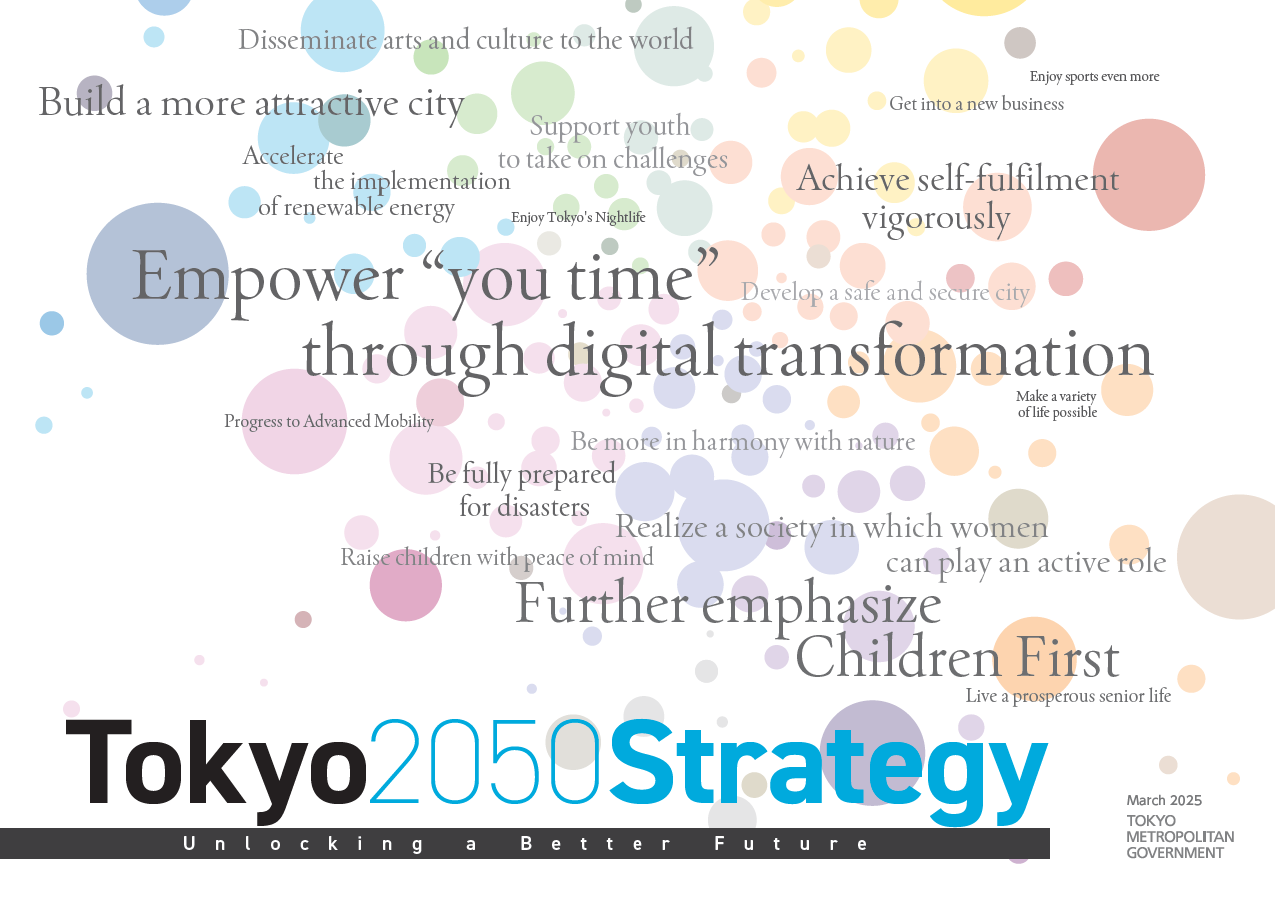
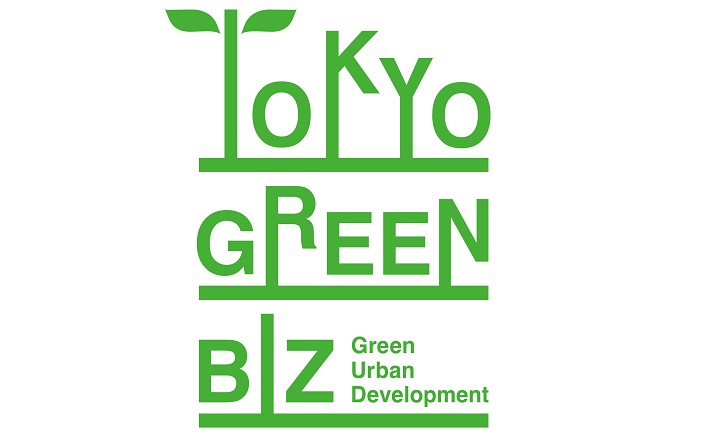
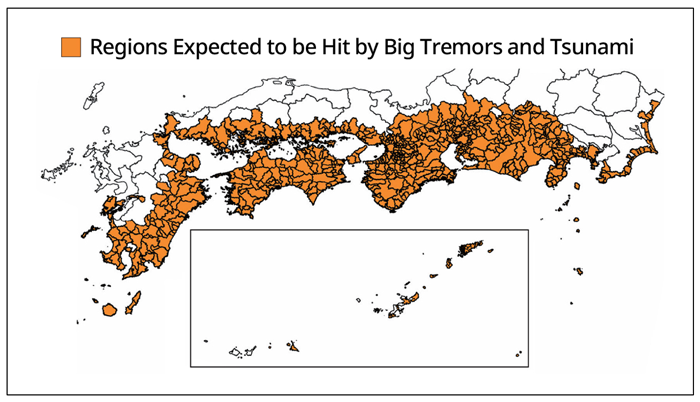

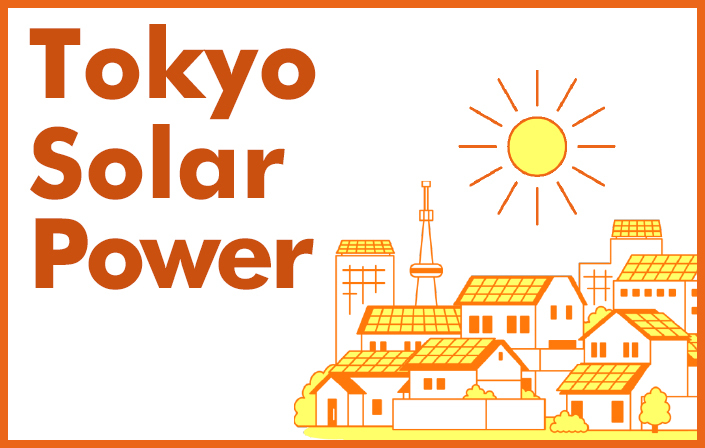
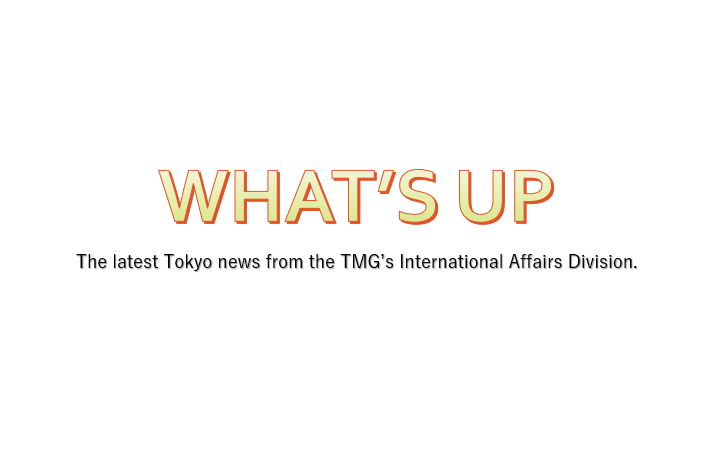
Recommended for You
Govenor Koike Calls for Innovation at FII PRIORITY Asia Summit 2025
December 1, 2025
Tokyo Governor’s Mideast Tour Highlights Multi-City Resilience Efforts and Japanese Capital’s Global Presence
November 27, 2025
Japan-U.S. Leadership Summit Held at UNU in Tokyo
October 10, 2025
TIME TO ACT FORUM 2025: Strategically Tackling Climate Change
October 7, 2025
Tokyo 2025 Deaflympics (Part 1): A Leap Towards an ‘Inclusive Society’ with Sign Language
November 12, 2025
Championing Inclusive Growth: OECD and Tokyo’s Shared Vision
November 13, 2025
Call to Action for Hydrogen Use at “HENCA Tokyo 2025”
October 21, 2025
Governor Koike Inspects Hachijojima Island Hit by Typhoons
October 15, 2025
Tokyo Disaster Response Headquarters Meeting (2nd Session)
October 9, 2025
Selection of My Fave Umbrellas
September 25, 2025